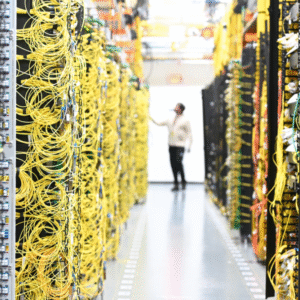In a major educational reform, China will make AI education mandatory in primary and secondary schools starting September 1, 2025. This decision reflects China’s growing commitment to becoming a global leader in artificial intelligence. By introducing young students to AI concepts early, China aims to equip the next generation with the skills needed in a rapidly advancing tech-driven world.
This move is seen as a strategic step toward fostering innovation, building a tech-savvy workforce, and securing long-term economic strength through AI.
What Does AI Education Mean for Students?
AI education in China’s curriculum will cover basic concepts like machine learning, algorithms, robotics, data analysis, and the ethical use of AI. The curriculum is expected to be age-appropriate, starting with simple AI logic in early classes and moving to advanced applications in higher grades.

By starting early, Chinese students will develop a deeper understanding of how AI works and how it is applied in real-world scenarios. This early exposure not only prepares them for future careers but also enhances their problem-solving, analytical thinking, and creativity.
China’s Vision for AI and Global Competition
China’s Ministry of Education has been laying the groundwork for AI education for several years. This new mandate is part of the country’s broader AI development strategy, which includes AI research funding, partnerships with tech companies, and integration of AI in industries such as healthcare, manufacturing, and transportation.
By embedding AI into the national education system, China is sending a strong message: the country is not just using AI—it’s shaping the future of it.
According to a report from UNESCO, many countries are exploring AI integration into their education systems, but China is among the first to make it a nationwide requirement.
Challenges and Opportunities
While this shift offers many benefits, it also presents challenges. Teachers will need training, new teaching materials must be developed, and schools in rural areas will require proper infrastructure. However, China has a strong track record of rolling out national education policies effectively.
The government has also announced plans to collaborate with AI experts, tech companies, and universities to support schools during this transition.
On the opportunity side, students graduating from this AI-focused system will be better equipped for jobs in data science, robotics, cybersecurity, and emerging tech fields. This aligns well with the country’s long-term goals of leading global innovation.
Global Implications and Future Trends
China’s move is likely to influence other countries to follow suit. As AI becomes central to economies, early education will be crucial. Nations that fail to adapt may risk falling behind in the global innovation race.
China’s policy could set a global benchmark, encouraging the development of international standards for AI curriculum in primary education.
For those interested in following this trend, here are a few useful resources:
- OECD – AI and the Future of Skills
- World Economic Forum – The Role of AI in Schools
- China’s AI Development Plan Summary










1 Comment